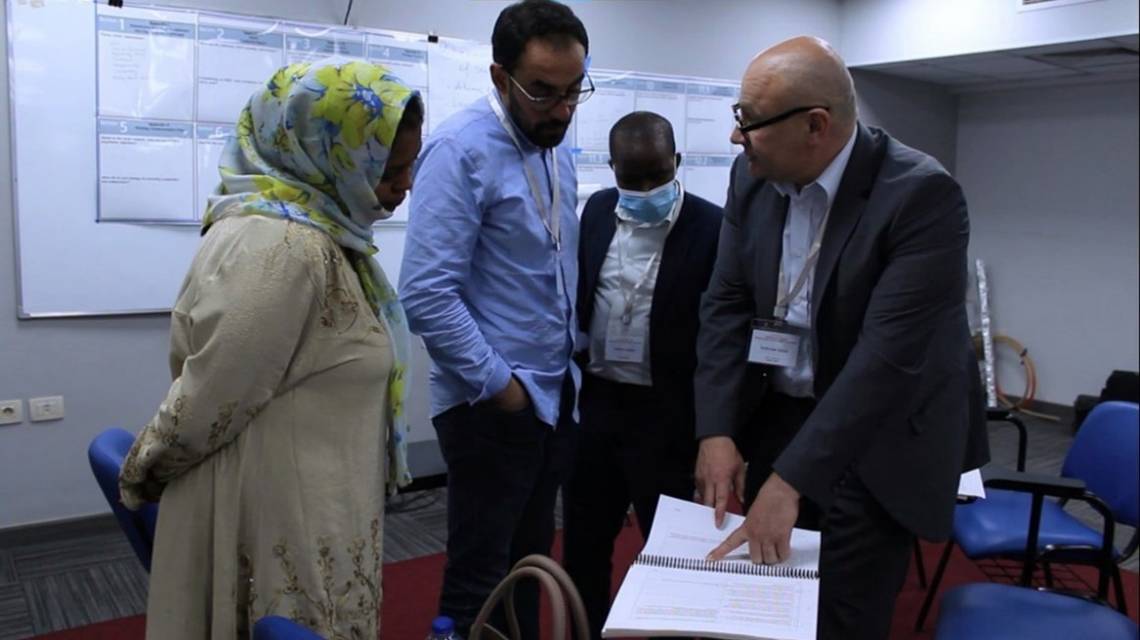Representatives from several of the 66 member countries of the International Network for Nuclear Security Training and Support Centres (NSSC Network) came together last week to mark 10 years of working together to bolster the sustainability of national nuclear security regimes around the world.
Launched in 2012, initially with the support of 29 countries, the NSSC Network coordinated by the IAEA enhances the work of national Nuclear Security Support Centres by promoting international cooperation through connecting these centres in a community of practice for its members. National Nuclear Security Support Centres help foster a culture of nuclear security, by providing related employee training programmes, technical support services for managing the nuclear security equipment lifecycle, and scientific support services for providing expertise, analysis, and research and development. Since its inception, the NSSC Network has more than doubled its membership.
“The growth of the Network in the past ten years has been remarkable, as has its contribution to nuclear security,” said Lydie Evrard, IAEA Deputy Director General and Head of the Department of Nuclear Safety and Security. “It has established a community that shares the vision of sustaining nuclear security, and has developed practical tools that allow members to stay current on innovative approaches and developments in all areas of nuclear security.”
The NSSC Network has developed information sharing tools, including a Library of Lessons Learned and Case Studies (LiLLaCS) launched in 2020, which documents key lessons learned, good practices and case studies from national Nuclear Security Support Centres; an NSSC Network Newsletter launched in 2018, which in its publicly available version provides biannual updates on Network developments and members’ information and activities; an NSSC Network Database launched in 2017, providing all the key information about Nuclear Security Support Centres; and an NSSC Network Calendar launched in 2016, offering access to an overview of activities planned by Nuclear Security Support Centres, as well as specific institutions’ events.
In 2020, the Network published a technical document, “Establishing and Operating a National Nuclear Security Support Centre”, which provides a systematic approach to, and detailed guidance and templates for, developing such a centre. Following its publication, training material was developed to support its implementation, and a pilot workshop took place in Egypt this year with 25 participants from 16 African countries, reinforcing a systematic approach to planning, establishing and operating a national Nuclear Security Support Centre.
“We look forward to seeing a continued improvement in enhancing capacity in human resources development, as well as in the technical and scientific support that the Network provides to its members,” said Beth Kaboro, NSSC Network Vice Chair. “Our priorities include the development of training to assist members in using the self-assessment tools for establishing and implementing sustainable Nuclear Security Support Centres, and the organization of technical visits among Nuclear Security Support Centres to further encourage sub-regional, regional and international cooperation.”
The NSSC Network designs, develops and conducts its activities through the leadership of its management and three working groups covering coordination and collaboration; best practices; and information sharing, promotion and outreach. It has six regional and sub-regional networks and groups: the Africa Regional Group; the Asia Regional Network; an ARASIA group, the Hungary, Lithuania, Ukraine Consortium; the Latin America Regional Group and the Southeast Asian Nations Group.
In addition to its 66 member countries, the Network has 10 observers from organizations that support the core functions of a Nuclear Security Support Centre. The Network’s activities include expert consultancy meetings, capacity building events, technical exchange visits, regional cooperation frameworks and documentation of good practices.
For more information about the NSSC Network, and becoming a member, click here.







